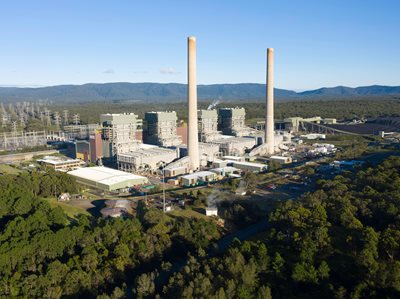NSW continues to lead on a better, cleaner environment
The NSW Government will continue to play a leadership role across important environmental policies, including work to develop a national framework that puts a value on biodiversity.
At the first meeting of Environment Ministers since April 2021 in Brisbane today, NSW Minister for Environment James Griffin said NSW is well placed to contribute to this critical work.
“In NSW, we’re leading the way nationally in our work to recognise natural capital,” Mr Griffin said.
“It is human nature to protect what we value, and natural capital is a key focus in NSW, setting us on a path to better value nature and biodiversity, and in doing so, conserving it for future generations, while rewarding those who make a positive contribution to our environment.
“In NSW, we’re already developing a suite of natural capital programs that make the economic cost of environmental impacts visible, the price of restoration certain, and the value of conservation both accurate and assured.”
Ministers also discussed the Australian Government’s commitment with nearly 100 nations to reverse biodiversity loss by 2030, also known as ‘the 2030 pledge’.
In response, NSW will establish a panel of eminent Australians to provide advice by mid-2023 on how NSW can contribute to that national goal in a manner that is equitable, science-based and cost-effective, and optimises environmental, social and economic benefits for communities across NSW.
“This is an ambitious target that will need to be considered by every jurisdiction, and I’m looking forward to further consultation with the Australian Government and my fellow Environment Ministers,” Mr Griffin said.
“NSW has a strong track record of protecting land in perpetuity, and I will ensure that any national level agreements capture the significant protections we’ve already delivered on our public and private estates.
“For example, 10.2 percent of the landmass in NSW is protected as part of the national parks estate, or through in-perpetuity private land conservation agreements, which is a fantastic achievement.”
Ministers considered strengthening protections for threatened species, and NSW reconfirmed its eagerness to share its nation-leading programs with other jurisdictions, including the Saving our Species program, and commitment to zero extinctions in the national parks estate.
“Ministers agreed to accelerate national efforts to prevent new extinctions, including through a NSW proposal to assess and develop emerging technologies for feral cat control,” Mr Griffin said.
“We know feral cats kill more than two billion native animals every year, as well as costing an estimated $6 billion annually in human health and livestock impacts.”
In relation to plastic bans, Minister Griffin supported a greater focus on alignment between states on the ban of plastic items, including the type and schedule of items for phase out and the need to coordinate research.
In relation to reducing waste and recycling, Mr Griffin presented a paper to progress better tyre recycling options to mitigate the social, economic and environmental impacts of waste tyres.
NSW also strongly supported the commencement of work to establish sufficient processing capacity for problem waste generated from renewable energy infrastructure and related industries.
“We need a nationally consistent effort and approach when it comes to waste and recycling and push towards a circular economy, especially with waste that is currently difficult to recycle,” Mr Griffin said.
“The NSW EPA is already delivering a $10 million Circular Solar program to reduce the landfilling of solar panels and associated batteries and increase recycling.
“Through the program, we’ve already provided funding to eight projects that will deliver more 10,000 tonnes of annual recycling capacity.”
NSW welcomed the Australian Government’s commitment to responding to the Samuel Review recommendations by the end of 2022 and further consultation with states and territories on its response.
Related Articles: #Energy


